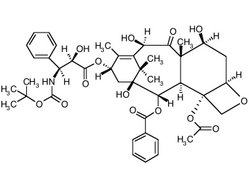In December 2004, the FDA learned from AstraZeneca Pharmaceuticals that a large clinical trial comparing Iressa (gefitinib) with an inactive substance (placebo) showed no survival benefit from taking Iressa. The study involved people with non-small cell lung cancer who had failed other courses of cancer therapy.
People who take Iressa should consult their physicians as soon as possible, but they should not change their therapy without first talking to a health care professional.
Alternative therapies are available. The FDA has approved Taxotere (docetaxel) and Tarceva (erlotinib), both of which have been shown in studies to improve survival in people with non-small cell lung cancer whose cancer has progressed while on previous therapies.
The FDA approved Iressa on May 2, 2003, under the agency's accelerated approval program. This program allows the agency to approve a drug for marketing based on how it affects a surrogate endpoint--such as a sign of a disease or the results of a laboratory test--that is considered reasonably likely to predict clinical benefit, such as improved symptoms or survival.
Iressa was approved because the data from clinical trials showed that it caused significant shrinkage in tumors in about 10 percent of patients, and this was thought likely to increase patients' overall survival time.
One requirement for drugs approved under accelerated approval is that the sponsor must study them further to verify the expected clinical benefit. After the approval of Iressa, AstraZeneca, based in Wilmington, Del., conducted a study in about 1,700 patients to determine whether the drug would in fact prolong survival in comparison to patients taking a placebo. The results indicate that the drug did not prolong survival.
Under the FDA's accelerated approval program, the agency has the authority to remove a drug from the market if a postmarketing clinical study fails to verify clinical benefit. After the FDA has evaluated the recent study results, the agency will determine whether Iressa should be withdrawn from the market or if other regulatory actions are appropriate.
COPYRIGHT 2005 U.S. Government Printing Office
COPYRIGHT 2005 Gale Group



